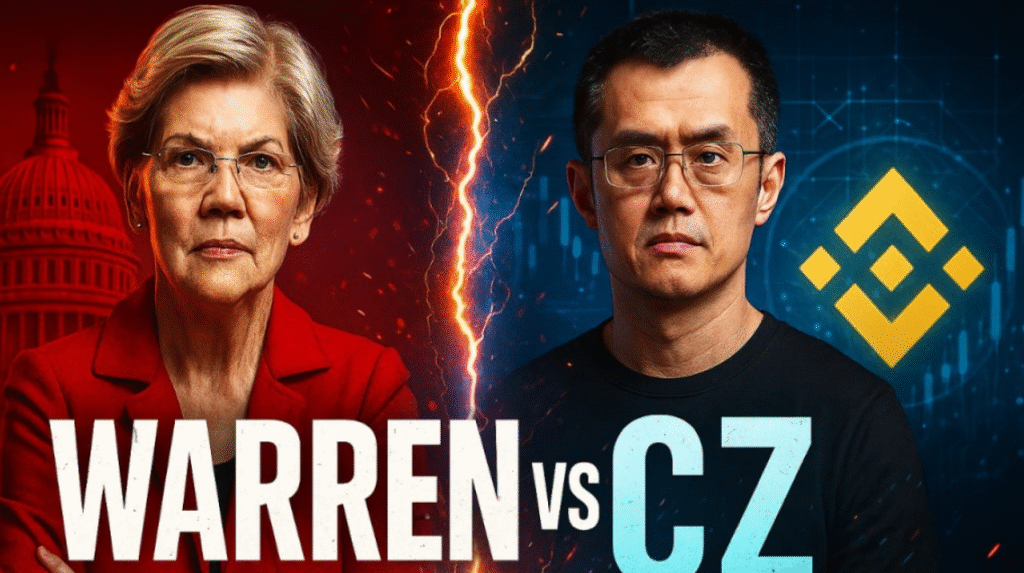In the fast-paced world of cryptocurrency and finance, the complexity of legal disputes involving high-profile figures is not uncommon. Such scenarios often capture public interest, especially when they intersect with political affairs. A recent example involves Senator Elizabeth Warren and Changpeng “CZ” Zhao, co-founder of Binance. This case touches upon critical issues of defamation, legal thresholds, and the impact of public statements made by influential individuals. This article explores the intricate details of this ongoing saga, examining both the legal and societal implications.
Senator Warren’s Defamation Dispute with Binance’s CZ
Overview and Context
Senator Elizabeth Warren recently found herself at the center of a potential legal battle after making public statements about Changpeng Zhao on social media. Her comments, which referenced Zhao’s past legal issues and alleged connections to political figures, sparked a strong response from Zhao’s legal team. Warren’s statements relied on information from public records and Department of Justice (DOJ) disclosures.
Warren’s Legal Position
In response to Zhao’s threat of a defamation lawsuit, Warren’s attorney, Ben Stafford, issued a firm rebuttal. He argued that Warren’s statements were grounded in publicly available DOJ materials, thus lacking any defamatory intent. The letter emphasized the First Amendment’s protection of free speech, particularly concerning public figures.
The Legal Precedent and First Amendment
Legal experts pointed out the challenges of pursuing defamation claims against public figures in the United States. The legal requirement to prove “actual malice” — that false statements were made knowingly or with a reckless disregard for the truth — sets a high bar for plaintiffs. This standard was established in landmark Supreme Court cases and remains a formidable hurdle for potential lawsuits of this nature.
Public and Media Reaction
Warren’s statements about Zhao and the subsequent legal threats have been widely covered in both mainstream and specialized crypto media outlets. Her accusations of corruption in the cryptocurrency sector have fueled public debate, intensifying scrutiny over Zhao’s business practices and alleged political ties.
Background: CZ’s Legal Troubles and Political Allegations
In a related legal matter, Zhao admitted to failing to uphold Anti-Money Laundering (AML) standards at Binance, resulting in a conviction under the Bank Secrecy Act. He received a prison sentence, drawing attention to his influence in the crypto industry. Warren’s recent allegations suggested Zhao’s involvement in funding political figures, which has sparked further controversy.
Legal Challenges for a Defamation Lawsuit
Legal commentators have highlighted the difficulties Zhao would face in pursuing a defamation lawsuit against Senator Warren. Due to the high threshold for proving defamation against public figures, these cases are often considered improbable unless there is clear evidence of malicious intent. This situation underscores the complexities of legal actions involving high-profile individuals and their public statements.
FAQs
What are the implications of Zhao’s past legal issues on Binance?
Zhao’s legal challenges, particularly those involving AML violations, underscore the importance of compliance within the cryptocurrency industry. These cases highlight the regulatory scrutiny facing major crypto exchanges and emphasize the need for transparent operations to maintain trust and credibility.
How does the First Amendment protect public figures in defamation cases?
The First Amendment provides robust protections for free speech, particularly when public figures are involved. In defamation cases, plaintiffs must demonstrate that the defendant knowingly made false statements with malicious intent, a criterion that makes such lawsuits challenging to win.
Why is the “actual malice” standard significant in legal proceedings against public figures?
The “actual malice” standard is crucial because it protects individuals’ rights to free expression while preventing frivolous lawsuits against those making critical or controversial statements about public figures. This standard ensures that only cases with substantial evidence of deceit or malicious intent proceed.
This comprehensive guide delves into the intricate dynamics of Senator Warren’s dispute with CZ, offering a clear understanding of the legal and societal stakes. The FAQs provide further context, assisting readers in navigating these complex issues with informed insight.

